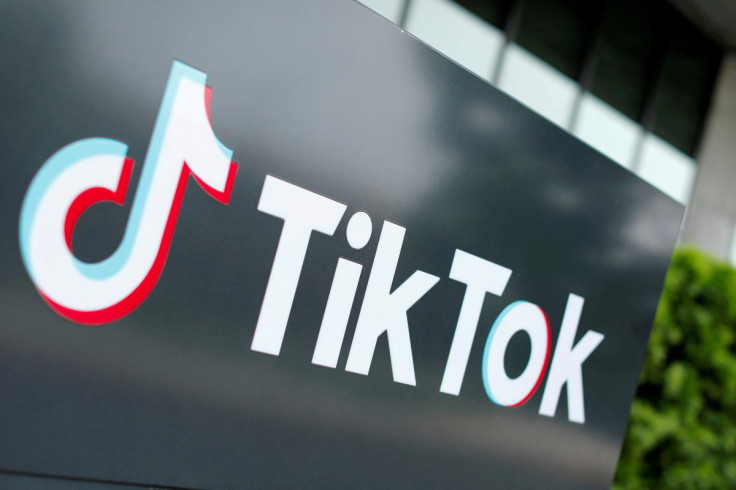Influencer objects to potential US TikTok ban amidst China links and data security concerns
Citing free speech concerns, influencer Matt Welland has objected to a potential US ban of TikTok as concerns over data security and TikTok's links to China worry US officials.

According to Matt Welland, a TikTok influencer who has amassed nearly 3 million followers and 69 million likes, a ban on TikTok would constitute a severe restriction on free speech. Specifically, Welland is concerned that a ban on TikTok in the US would have knock-on effects across the globe for creative individuals who "inform, educate and entertain" on a daily basis.
Welland uses TikTok to disseminate content on conspiracy theories, media, education, history, and science fiction. Wellend's concerns are motivated by the pressure exerted on TikTok by the US government.
On the first of March, the US Foreign Affairs Committee voted to give the US administration the power to ban software applications which are judged to threaten US national security, including TikTok. Foreign Affairs Committee Chairman Michael McCaul claimed that it is "no secret that TikTok is beholden to the CCP." He referred to TikTok as a "modern-day Trojan Horse of the CCP," which ultimately presents a security risk to the personal information of US citizens.
Later in March, TikTok CEO Shou Zi Chew faced intense questioning from Republican and Democrat officials at a US Congressional hearing. He claimed that it is "emphatically untrue" that TikTok is "beholden to the Chinese government," emphasising that the company does not share US users' data with Chinese authorities.
TikTok banned on government devices
In the UK, TikTok has been banned by the Cabinet Office on government devices over concerns for the security of government data. The ban is stated as "precautionary". The government also mentioned that policy on the use of third-party applications would be "strengthened", implying that data security concerns are not exclusive to TikTok. The decision has followed in the direction of the US, Canada, and the European Commission.
Governments are concerned because TikTok requires permission from users to access data on the device on which it is installed. That information is then stored by TikTok. For example, data collected could include contacts, user content, and geolocation data.
Earlier this month, TikTok was fined £12.7 million in the UK by the Information Commissioners Office for illegally processing the data of users under the age of 13 without parental consent.
Why ban TikTok nationwide?
It is one thing to ban TikTok on government devices, it is another thing to ban the platform nationwide. For the US and other Western countries, concerns lie over what the Chinese government could do with the information collected by TikTok if it obtained it.
Chew attempted to reassure officials at the recent US Congressional hearing that TikTok would protect US users' data. In total, TikTok has 150 million monthly users in the US. He promised that TikTok would "firewall-protected U.S. user data from unauthorised foreign access," and that TikTok would continue to be a free speech platform unimpeded by any government manipulation.
More specifically, Chew explained measures undertaken by TikTok to ensure "the data of all Americans is stored in America and hosted by an American headquartered company." To store US users' data, TikTok has contracted an industry leader in cloud-based services, Oracle. As a result, Chew claims that "100 per cent of U.S. user traffic is being routed to Oracle and USDS-controlled infrastructure in the United States."
However, it is unclear that the commitment to protect US user data is commensurate with the fact that TikTok is owned by the Chinese company ByteDance. As a Chinese-owned company, TikTok is potentially subject to the provisions of China's 2017 National Intelligence Law.
Article seven states the obligation of "any organisation" to "assistant and cooperate with the national intelligence work." Moreover, the law potentially gives the Chinese government the right to compel companies that operate in China to hand over information to national intelligence agencies and to conceal any activity they wish to hide.
Arguably, given the great power competition between the US and China, with China presenting a challenge to the US both in terms of hard and soft power, it is reasonable that the US is concerned with the interests the Chinese government may possess in harvesting the data of TikTok users.
Sceptics of China will naturally mention the cyber security risk posed. The US and UK have stated their concerns over China's interest in cutting-edge technologies developed in the West.
Would a TikTok ban constitute a meaningful constraint on free speech?
Whilst banning platforms like TikTok might constitute a constraint on free speech, there are other avenues by which influencers can reach their target markets and disseminate creative content to the public, for example, via other social media and internet forums. If TikTok were banned in the US, its users could adapt and find other ways of communicating in the public domain.
Furthermore, national security concerns over user data do not amount to prejudice against any specific kind of viewpoint or content. Rather, concerns lie over the information TikTok gathers about its users and the leverage it could provide to an authoritarian Chinese government intent on challenging Western power and political norms.
More broadly, the rise of social media presents ambiguous questions for those concerned with free speech. For example, debates exist over whether the owners of platforms like Twitter should ban certain individuals at their subjective discretion, whilst allowing others the right to post content. TikTok concerns only add to the complex debates on the future role of social media in democratic societies.
© Copyright IBTimes 2025. All rights reserved.





















